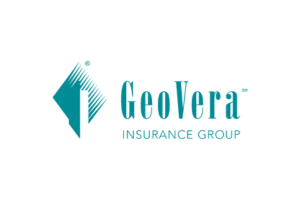How to Find the Best Florida Auto Insurance Option

Finding the right auto insurance in Florida can be overwhelming, but it’s crucial for protecting yourself, your passengers, and your vehicle. Florida’s unique insurance requirements and its high-risk driving conditions make it essential to carefully evaluate your options. Here’s what you need to know to find the best Florida auto insurance policy for your needs.
1. Understand Florida’s Minimum Coverage Requirements
Florida is a no-fault state, meaning that in the event of an accident, your own insurance will cover your medical expenses and lost wages, regardless of who is at fault. However, the state’s minimum insurance requirements are often not enough to fully protect you in the event of a serious accident. The required minimum coverage for Florida drivers includes:
- Personal Injury Protection (PIP): $10,000 minimum. This covers medical bills and lost wages for you and your passengers, regardless of fault.
- Property Damage Liability (PDL): $10,000 minimum. This covers damage you cause to another person’s property.
While these are the state-required minimums, they might not offer sufficient protection in case of a serious accident. That’s why it’s recommended to consider higher coverage limits and additional policies.
2. Consider Optional Coverages for Extra Protection
While the state’s minimum requirements are a starting point, Florida drivers should strongly consider additional coverage options to enhance their protection. Some of the most important types of auto insurance coverage to consider include:
- Bodily Injury Liability (BIL): Covers medical expenses for others if you cause an accident. Florida does not require BIL, but it’s strongly recommended. It can protect you from legal and medical expenses if you are responsible for causing injury in a crash.
- Collision Coverage: Helps pay for the repair or replacement of your vehicle after an accident, regardless of fault.
- Comprehensive Coverage: Covers damage to your car that is not caused by a collision, such as theft, vandalism, or damage from storms—important in Florida due to frequent hurricanes and flooding.
- Uninsured/Underinsured Motorist Coverage: This protects you if you are involved in an accident with a driver who doesn’t have enough insurance or any insurance at all.
- Medical Payments Coverage (MedPay): Helps pay for medical expenses for you and your passengers, regardless of who caused the accident. MedPay can work alongside PIP in Florida.
3. Take Advantage of Discounts
Insurance companies often offer discounts to drivers based on factors such as driving history, vehicle safety features, or even membership in certain organizations. Some common discounts to look for include:
- Safe Driver Discount: If you have a clean driving record, you could save on your premiums.
- Multi-Policy Discount: Bundle your auto insurance with other policies, such as homeowners or renters insurance, to receive a discount.
- Anti-Theft Device Discount: Vehicles with security features like alarm systems or GPS tracking devices can qualify for a discount.
- Good Student Discount: Young drivers who maintain good grades may qualify for a discount.
At Insurance Alliance, we’ll help you explore all available discounts to ensure you’re getting the best rate.
4. Compare Quotes from Multiple Providers
One of the best ways to find the right auto insurance in Florida is to shop around and compare quotes from multiple insurance providers. Premiums can vary greatly from one company to another, so comparing options is essential to finding the most cost-effective coverage for your needs.
When comparing quotes, make sure you’re comparing similar coverage levels. It’s also important to review the insurer’s customer service reputation, claims handling process, and financial stability to ensure you're working with a company that’s reliable and trustworthy.
5. Weather-Related Risks in Florida
Florida is known for its unpredictable weather, including heavy rains, hurricanes, and floods. This means that drivers in Florida face higher-than-average risks of weather-related damage. Comprehensive coverage is especially important in Florida to protect against non-collision damage like wind, hail, or flood damage to your vehicle.
For example, Florida’s hurricane season (June through November) can cause significant damage to vehicles, and many insurance companies provide specific coverage options for vehicles damaged by storms, including wind and hail.
6. Florida’s High Number of Uninsured Drivers
Florida has one of the highest rates of uninsured and underinsured drivers in the country. According to the Insurance Information Institute (III), roughly 20% of drivers in Florida are uninsured. This makes uninsured/underinsured motorist coverage even more important. It helps protect you if you’re involved in an accident with a driver who lacks sufficient insurance coverage.
7. Work with an Insurance Expert at Insurance Alliance
At Insurance Alliance, we understand the complexities of Florida’s auto insurance market and are here to help you navigate your options. Our agents are familiar with the state’s unique requirements and can assist you in choosing the best coverage at the best price. We offer personalized service and can help you tailor your policy to fit your needs—whether you’re a new driver, a seasoned motorist, or someone looking for better coverage.
Conclusion
Finding the best Florida auto insurance requires understanding your state’s minimum requirements, considering additional coverage options for comprehensive protection, and comparing quotes from multiple providers. While Florida’s weather and driving conditions pose unique risks, having the right insurance coverage can give you peace of mind knowing that you’re protected in the event of an accident or natural disaster. Contact Insurance Alliance today to discuss your Florida auto insurance needs and secure a policy that’s tailored to you.











